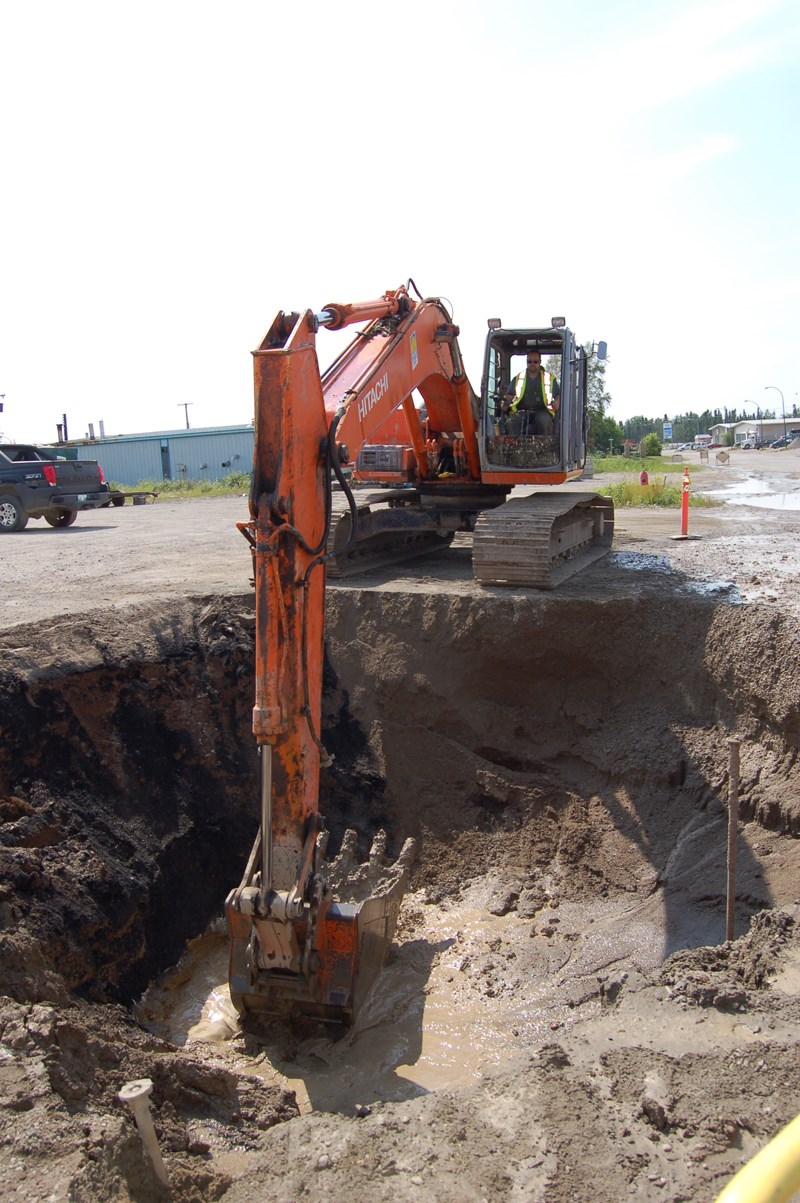At a meeting of Thompson's city council on Feb. 1, a resolution to amend the city's fees and fines schedule to increase cost recovery for work on private property through an increase in the property dig rate for repairing water and sewer lines from $1,000 to $2,000 was tabled.
Last April, city council passed the 2009 fees and fine schedule, and at the time moved the fee for a property dig from $250 to $500. Last October, council approved the 2010 fee and fine schedule and went from $500 to $1,000 with a start date of Jan. 1. The resolution to move the fee from $1,000 to $2,000 came forward on Jan. 4.
Despite this, the resolution was tabled on Feb. 4 to allow council and city administration more time to discuss what to do with the situation. Coun. Erin Stewart says a community meeting is taking place at the Letkemann Theatre at R. D. Parker Collegiate at 7 p.m. on Feb. 23 to further discuss the issue.
Different members of city council had varying opinions on whether the fee should be increased, and Wayne Koversky, director of public works with the city of Thompson, explained that this is a step in moving towards a user-fee plan for service digs. Koversky has completed a survey of different municipalities in Manitoba to see what other communities are doing, as well.
"We have infrastructure costs that we deal with on personal properties, and because those costs fluctuate each year, we're trying to get into what they call a preventative maintenance program that supplements some of the cost of those digs," he says. "City council has a fee and fine schedule, and basically there's a cost to whatever service we provide, and some of those services such as repairing a service line - which is eventually in the strategic plan - was that this council would go to a user-fee payment service. One of these fees we provide is to repair your water line, service line and storm line. They're all part of that service fee based on your own lines leaving your house."
The potential $2,000 charge would be applicable to the service that is allocated to the private property of an individual, with city crews identifying which line is a storm line, sanitary line and water line. Any lines that the city provides service to the property for, such as water mains, would be covered by the city of Thompson, while the homeowner would be responsible for any line that goes to and from his or her home. If a service break happens, the owner is responsible for restoration of their driveway and sidewalks. The city would replace the broken material and backfill and provide lawn enclosure at a dig fee that city council has to agree upon - whether it stays at $1,000 or moves up to $2,000.
"It's costing us about $4,500 a day at present for property which is in the parameters for most municipalities," Koversky reasons. "What's interesting, though, is because we don't have a water utility at present, the water utility replaces all the mains. Any other municipality that has a water utility, whether it be a flat fee or a water fee, doesn't cover the digs."
Koversky adds that installing a water utility next year is one of the objectives of council, which would help the city move to the user-fee method, which he believes will be beneficial overall because money what's received from the user-fee payment service will be allocated to future restoration of infrastructure.
Coun. Judy Kolada says she is opposed to raising the fee, saying the city has not gone to the public with enough information about this yet. She also says there are some parts of Thompson where the ground is unstable in to close proximity to Vale Inco that experience more line breaks than others.
"I think it's very scary for someone that's buying a house to realize that he could have three breaks in five years and it could cost him $4,000 or $5,000 each time," she says.




